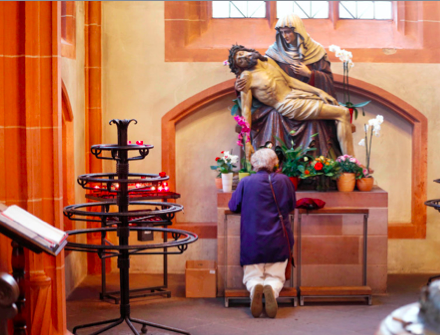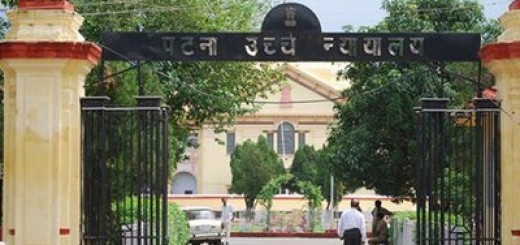German Bishops Open Way to Communion for Divorced Catholics

Communion for Divorced Catholics! – By Sewell Chan, Feb. 1, 2017, in New York Times
 In the pic: The Cathedral of St. Bartholomew, a Roman Catholic church in Frankfurt. Many German bishops are generally considered to be within the more liberal wing of the Catholic Church. CreditMichael Probst/Associated Press (Note: The Germans and the French are in the forefront of the liberal wing of the Catholic Church. Ahead of all was Francis with his German Theologian adviser Cardinal Walter Kasper. Even before the two Family synods began the cardinal in a speech at the invitation of the Pope had given an indication of the direction they were moving.
In the pic: The Cathedral of St. Bartholomew, a Roman Catholic church in Frankfurt. Many German bishops are generally considered to be within the more liberal wing of the Catholic Church. CreditMichael Probst/Associated Press (Note: The Germans and the French are in the forefront of the liberal wing of the Catholic Church. Ahead of all was Francis with his German Theologian adviser Cardinal Walter Kasper. Even before the two Family synods began the cardinal in a speech at the invitation of the Pope had given an indication of the direction they were moving.
But seeing the strong opposition from the vast majority of the Conservative wing, Francis slowly began to soft peddle and put himself into a silent mode, to force the whole church to rethink under pressure from the German, French and Belgian theologians. For synod observers it was a foregone conclusion that the Germans will go ahead with or without the Pope to give communion to the divorced – not annulled, remarried or not married. On what grounds? Didn’t Francis say many times off the cuff that half of the Catholic marriages may not be valid at all? If not valid where is the question of annulling or validating any?
What was there to doubt? The Pope and the Cardinal had repeated time and time again that the “Name of our God is Mercy”, that the image par-excellence of that God is “the Prodigal Father” who leaves the doors of his house wide open all the time, and stands out in the courtyard and strolls out of the gate to look far ahead to see if his prodigal son was returning. For that reason he even directed the doors of Catholic churches should always be kept open for every repentant to come in unquestioned.
Didn’t Francis even say that there is no “ratio de-etre” for a Church which is not for sinners, just as Jesus said, the Son of Man did not come looking for saints, the healthy but for sinners, the wayward, the sick and the mortally wounded in the battle fields of the Church? To which side does a giant oak is leaning terribly – to the East? Only to that side it will fall! Not to the west, to the conservative side.
To all sensible people it was a foregone conclusion, in this Pope’s shepherding time, his Church will go even to Hell to rescue sinners from the strangle hold of devils who are out to sully the Church’s fair face, her bewitching beauty and what is more to steal her virginity! All know the names of this Lucifer gang headquartered in Trump’s US and scattered around the globe especially in Australia and Europe.
The Germans have gone ahead now and shown the way, after holding some private meetings and taking some hesitant steps as trial balloons. Others in the conservative wing will be making noises led by US cardinal Raymond and Knights of Malta-man Matthew Festing for the sake of laity wing of Archconservatives, but to no avail in the long run. Thus the God of Catholics may be known soon as “Embodiment of MERCY” for the whole world. james kottoor, editor)
Catholics in Germany who have divorced and remarried without receiving an annulment may receive communion on a case-by-case basis, the German bishops’ conference announced on Wednesday. The decision is a major acceleration of a more welcoming — but disputed — stance on family life adopted by the Vatican under Pope Francis.
The decision was not unexpected; many German bishops are generally considered to be within the more liberal wing of the Roman Catholic Church. It was they who, at a 2015 synod on family life, proposed inviting divorced and remarried Catholics who had not had their first marriages annulled to seek the counsel of a priest to determine their future participation in church life.
But several German bishops have dissented, insisting that Catholics who have divorced and remarried must abstain from sex if they wish to receive the eucharist.
After that synod, the pope released a sweeping document on family issues last April that signaled a more welcoming stance toward divorced Catholics. The document — titled “Amoris Laetitia,” or “The Joy of Love,” and known as an apostolic exhortation — did not require churches to offer communion to the divorced, but it left the door open for bishops and priests to determine.
Bishops in Argentina and Malta subsequently adopted guidelines allowing divorced Catholics to receive the sacrament of communion; Germany has now become the most populous country to do so.
“Catholics who have been remarried under civil law after a divorce are invited to go to the church, participate in their lives and mature as living members of the church,” the German bishops’ conference said in a statement on Wednesday, summarizing the conclusions reached at a Jan. 23 meeting of the bishops in Würzburg to discuss the Vatican’s apostolic letter.
The statement offers “no general rule,” and it does not insist that priests offer communion to divorced people, but it calls for “differentiated solutions, which are appropriate to the individual case.”
Historically, the church holds that unless divorced Catholics have received an annulment, they are committing adultery by remarrying and cannot receive the sacrament of communion. Annulments are often difficult to obtain.
The April apostolic exhortation also called for priests to welcome single parents, gay people and unmarried straight couples who are living together, but it affirmed the church’s opposition to same-sex marriage, insisting that gay relationships cannot be seen as equivalent to heterosexual unions.
















